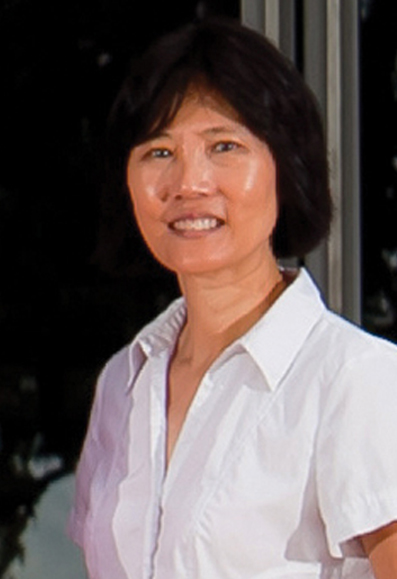
Affiliations
Honorary Joint Associate Professor, Department of Biochemistry, Yong Loo Lin School of Medicine, NUS.
Assistant Professor, Duke-NUS Graduate Medical School.
Research Interest
Oncogenic transformation by Ras and Rho oncoproteins depends largely on the appropriate post-translational modification at their C-termini. In this regard, many key regulatory proteins involved in oncogenic signaling processes possess the C-terminal CAAX sequence which destines them for prenylation modification. Protein prenylation is a three step process which involves the addition of an isoprenoid lipid by one of the two prenyltransferases, a proteolytic step by Rce1 protease, and the carboxymethylation by an enzyme termed Icmt.
Because of the functional dependency of CAAX proteins on the prenylation modification, targeting these oncoproteins through inhibition of the prenylation process has been a subject of intense study. Genetic and pharmacologic blockade of both the steps of isoprenoid lipid addition and of carboxymethylation have profound consequences on oncogenic transformation.
The focus of the basic research aspect of the lab is to advance the understanding of the role(s) that specific prenylated proteins play in cellular signaling and cancer development. In this setting, inhibitors of prenylation serve as useful tools in identifying important players in cell signaling. We have found that inhibition of Icmt, the enzyme for the last step of prenylation modification, induced excessive autophagy and cell death, in addition to G1 cell cycle arrest. Suppression of autophagy rescues cancer cells from cell death, suggesting that autophagy induction by inhibiting Icmt promotes cancer cell death.
Autophagy is a well-recognized cellular process involved in maintaining homeostasis by degrading macromolecules and eliminating unwanted cellular structures and organelles. Autophagy is a highly conserved mechanism in eukaryotic cells that starts with the formation of double membrane-bound vacuoles which ultimately fuse with lysosomes to degrade sequestered material. The dysregulation of autophagy results in numerous pathological conditions. Given its role in performing important homeostatic functions, it is not surprising that autophagy is subjected to multiple modes of regulation in response to intra- and extra-cellular stimuli. Many cell signaling processes, including those of nutrient, energy, and growth factor and stress response signaling, are all integrally involved in autophagy regulation. The identification of novel regulators in the initiation, progression and regulation of autophagy continues to be an evolving field, promising new insights and therapeutic targets. Considerable effort in the lab is focused on the identification of the CAAX protein(s) which are unidentified regulators of autophagy, through which the efficacy of Icmt inhibition is mediated by induction of autophagy and cell death.
The focus of the translational aspect of our research is to further advance the preclinical evaluation of potent and selective small molecule inhibitors of Icmt and one of the enzymes involved in the isoprenoid addition step, protein geranylgeranyltransferase I (GGTase-I), as therapeutic agents. The scope of the research includes:
(i) the investigation of the in vivo efficacy against proliferation and metastasis of these compounds using animal models;
(ii) the identification of new and better inhibitors in collaboration with our colleagues in NUS; and
(iii) the investigation of the pharmacokinetics and ADME/Tox properties of these small molecule inhibitors.
Selected Publications
- Wang, M*, Hossain, MS, Tan, WL, Brett, C., Zhou, J., Liu, S., and Casey, PJ. (2010) Inhibition of Isoprenylcysteine Carboxyl methyltransferase Induces Autophagic-Dependent Apoptosis and Impairs Tumor Growth in Hepatocellular Carcinoma. Oncogene. 29(35):4959-70.
- Go, ML, Leow, JL, Gorla, SK, Schueller, A, Wang, M, Casey, PJ. (2010) Amino derivatives of indole as potent inhibitors of isoprenylcysteine carboxyl methyltransferase. Resubmitted to J. Med. Chem. 53(19):6838-50.
- Wang, M., Khoo, Y. M., Zhou J., Casey, P. J., and Lee, H. S. (2009) A high-performance liquid chromatography method for the quantification of cysmethynil, an inhibitor of isoprenylcysteine carboxylmethyl transferase, in mouse plasma. J Chromatogr B Analyt Technol Biomed Life Sci. 15:877(5-6):553-7.
- Wang, M., Tan, W., Zhou, J., Leow, J., Go, M., Lee, H.S. and Casey, P.J. (2008) A Small Molecule Inhibitor of Isoprenylcysteine Carboxylmethyltransferase Induces Autophagic Cell Death in PC3 Prostate Cancer Cells. The Journal of Biological Chemistry. 283(27):18678-84.
- Pei, G., Samama, P., Lohse, M., Wang, M., Codina, J., Lefkowitz, RJ. (1994) A constitutively active mutant beta 2-adrenergic receptor is constitutively desensitized and phosphorylated. Proc Natl Acad Sci. 91:2699-702.
- Wang, M., Scott, W.A., Rao, K.R., Udey, J., Connor G.E., and Brew, K. (1989) Recombinant Bovine Alpha-lactalbumin Obtained by Limited Proteolysis of a Fusion Protein Expressed at High Levels in E. coli. The Journal of Biological Chemistry, 264:2116-21.

